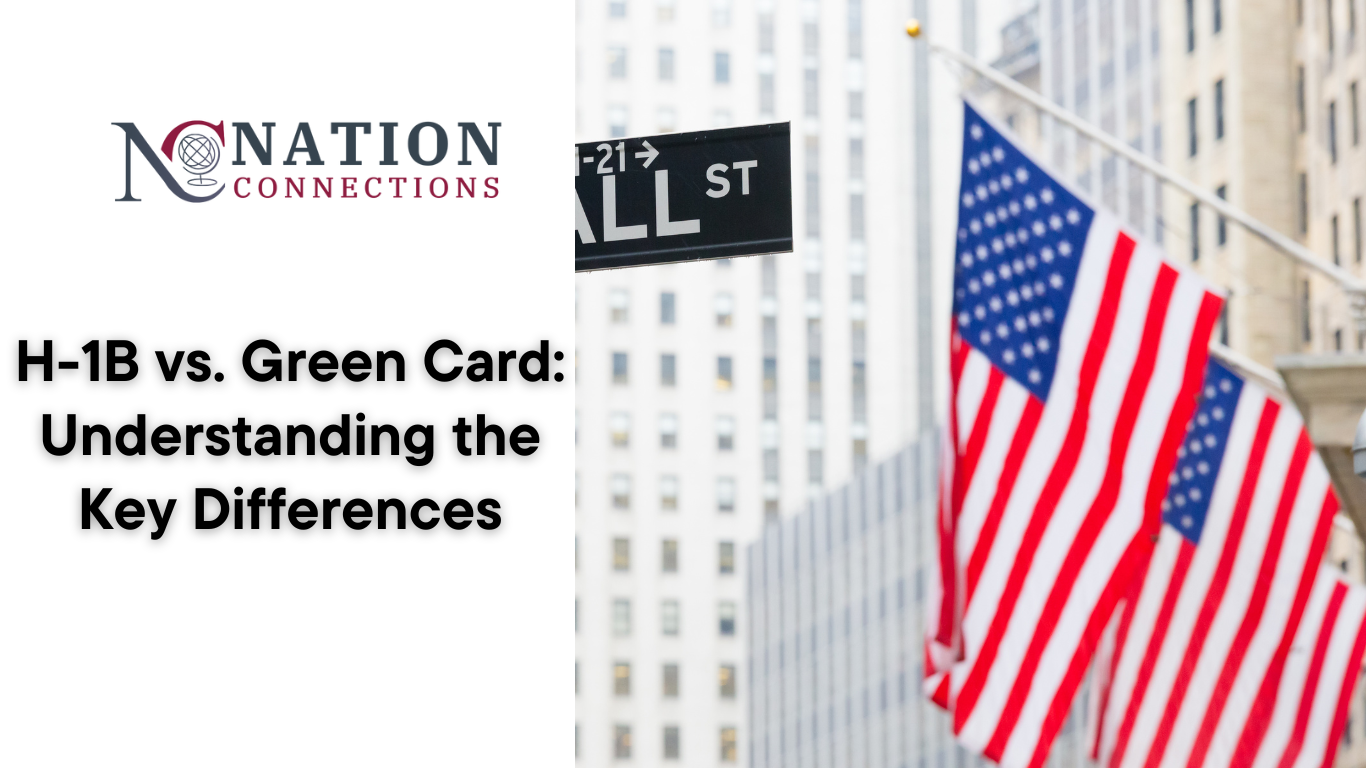
For individuals looking to live and work in the United States, two common options are the H-1B visa and the green card (permanent residency). While both allow foreign nationals to work in the U.S., they have significant differences in terms of eligibility, duration, rights, and long-term benefits. Understanding these differences can help professionals and employers make informed decisions about their immigration status.
In this blog, we’ll explore the H-1B vs. Green Card debate, breaking down their definitions, processes, restrictions, and advantages.
An H-1B visa is a temporary, non-immigrant work visa that allows U.S. employers to hire foreign workers in specialty occupations. These roles typically require a bachelor’s degree or higher and include fields such as IT, engineering, healthcare, and finance.
A green card grants a person lawful permanent resident (LPR) status, allowing them to live and work permanently in the U.S. It is a step toward U.S. citizenship for those who choose to apply.
| Feature | H-1B Visa | Green Card |
|---|---|---|
| Type | Temporary Work Visa | Permanent Resident Status |
| Validity | Up to 6 years | Indefinite (with renewal every 10 years) |
| Employer Sponsorship | Required for issuance and transfer | Needed for employment-based categories but not for family-based |
| Work Restrictions | Employer-specific, occupation-limited | No restrictions; can work anywhere |
| Annual Cap | 85,000 visas per year | No strict cap (varies by category) |
| Path to Citizenship | Not eligible for direct citizenship | Can apply for U.S. citizenship after 5 years |
| Dependents | Spouses and children on H-4 visa (limited work rights) | Spouses and children get permanent residency rights |
✅ You need a quick way to work in the U.S. temporarily.
✅ You want to work in a specialized field with an employer willing to sponsor you.
✅ You’re not ready to commit to permanent residency.
✅ You want permanent residency and freedom to change jobs.
✅ You plan to live in the U.S. long-term and possibly apply for citizenship.
✅ You want to sponsor family members for U.S. residency.
Yes! Many H-1B holders apply for a green card through employment-based sponsorship (EB-1, EB-2, or EB-3 categories). The process involves:
1️⃣ PERM Labor Certification (for most applicants)
2️⃣ I-140 Immigrant Petition (Employer files on behalf of employee)
3️⃣ Adjustment of Status (I-485) or Consular Processing
While waiting for a green card, H-1B holders can continue working in the U.S. under extensions beyond the 6-year limit if their green card application is in process.
Can H-1B holders apply for a green card?
Yes, many employers sponsor H-1B workers for employment-based green cards.
What happens if an H-1B visa expires?
If not renewed or transferred, the person must leave the U.S.
Does a green card expire?
Yes, but it can be renewed every 10 years.
Can green card holders lose their status?
Yes, if they stay outside the U.S. for extended periods without a reentry permit or commit legal violations.
Can green card holders sponsor family members?
Yes, they can sponsor spouses and unmarried children.
Which is easier to get, an H-1B or a green card?
H-1B is usually faster, but it depends on visa lottery selection. Green cards take longer but offer permanent residency.
The H-1B visa and green card serve different purposes but are often part of the same journey for foreign workers in the U.S. While H-1B offers a quick entry into the workforce, a green card provides long-term stability and independence. For those planning to settle in the U.S. permanently, transitioning from H-1B to a green card is a common pathway.
If you’re considering working in the U.S., evaluating your career goals, job prospects, and long-term plans can help determine which option is best for you. 🚀



